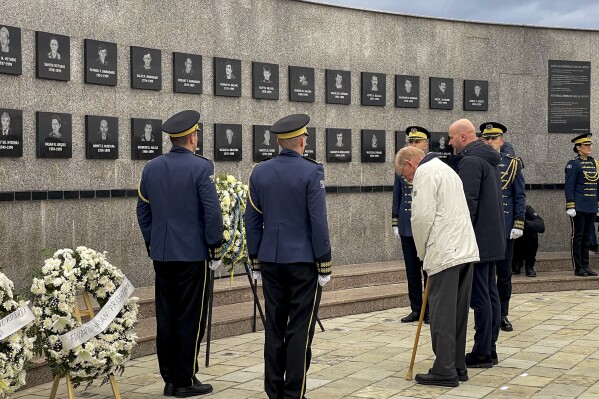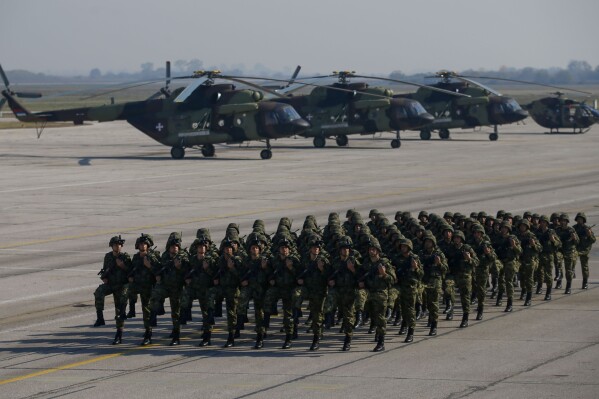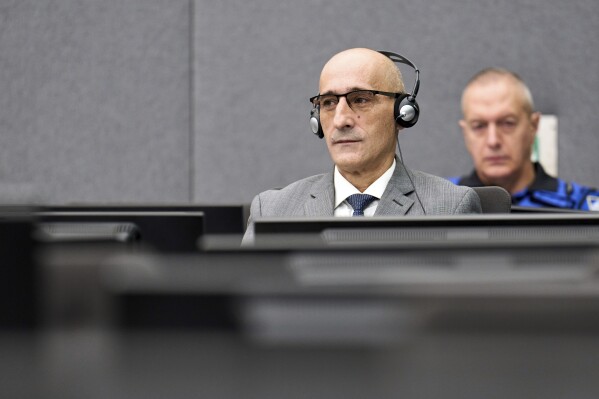Ethnic Serbs in Kosovo hold a petition drive in hopes of ousting 4 ethnic Albanian mayors
PRISTINA, Kosovo (AP) — Ethnic Serbs in northern Kosovo held a signature drive Wednesday in hopes of securing enough to oust four ethnic Albanian mayors whose elections last year sent tensions between Serbia and Kosovo soaring.
Groups of people were seen going to sport halls or other areas to sign petitions in the municipalities of Northern Mitrovica and Leposavic. The drive is expected to start soon Zvecan and Zubin Potok, two other municipalities in the north where most of Kosovo’s ethnic Serb minority lives.
Supporters of new municipal elections need the signatures of at least 20% of eligible voters.
“As a democratic state ... we do respect the rights of all of the citizens without any ethnic distinction, and such a right will be respected,” Kosovo President Vjosa Osmani, whose ethnic background is Albanian, said.



Ethnic Serbs overwhelmingly boycotted the April 2023 elections won by the ethnic Albanian mayors and tried to block them from their offices a month later. Scores of people were injured on both sides as the protesters clashed with Kosovo police and then NATO peacekeepers.
Kosovo Prime Minister Albin Kurti said over the summer that the municipal elections could be redone if supporters provided a basis that met constitutional rules, such as a petition.
Serbian forces fought a 1998-99 war with ethnic Albanian separatists in what was then the province of Kosovo. About 13,000 people, mostly ethnic Albanians, died. Kosovo eventually declared independence in 2008, but the government in Belgrade does not recognize its neighbor as a separate country.
Western powers have stepped up their work to negotiate a normalization agreement between Serbia and Kosovo, fearing instability in the Balkans as Russia’s war rages in Ukraine. The European Union has made it clear that such an agreement is a prerequisite to Kosovo and Serbia joining the bloc.
Ethnic Albanians make up most of Kosovo’s population, while a restive Serb minority is concentrated in northern areas bordering Serbia.
In a step toward reconciliation this month, Serbia and Kosovo agreed to allow each other’s vehicle license plates to be used in their respective areas.
___
Semini reported from Tirana, Albania.
___
Follow Llazar Semini at https://x.com/lsemini
Disclaimer: The copyright of this article belongs to the original author. Reposting this article is solely for the purpose of information dissemination and does not constitute any investment advice. If there is any infringement, please contact us immediately. We will make corrections or deletions as necessary. Thank you.

